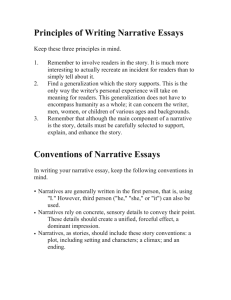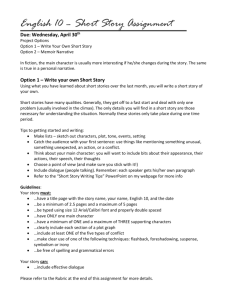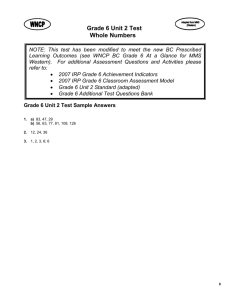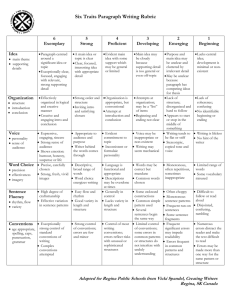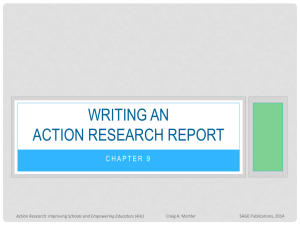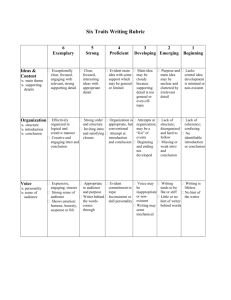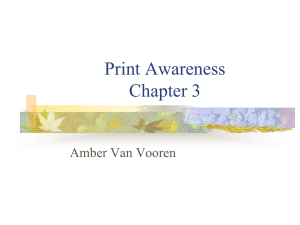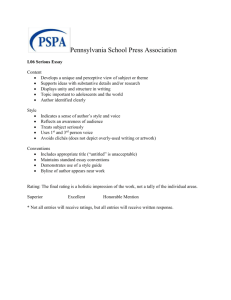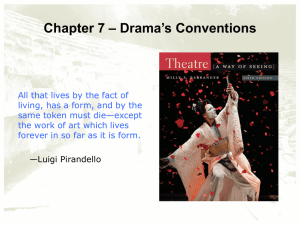Round Table Discussion Guidelines, Group... 39KB Jun 02 2013 09
advertisement
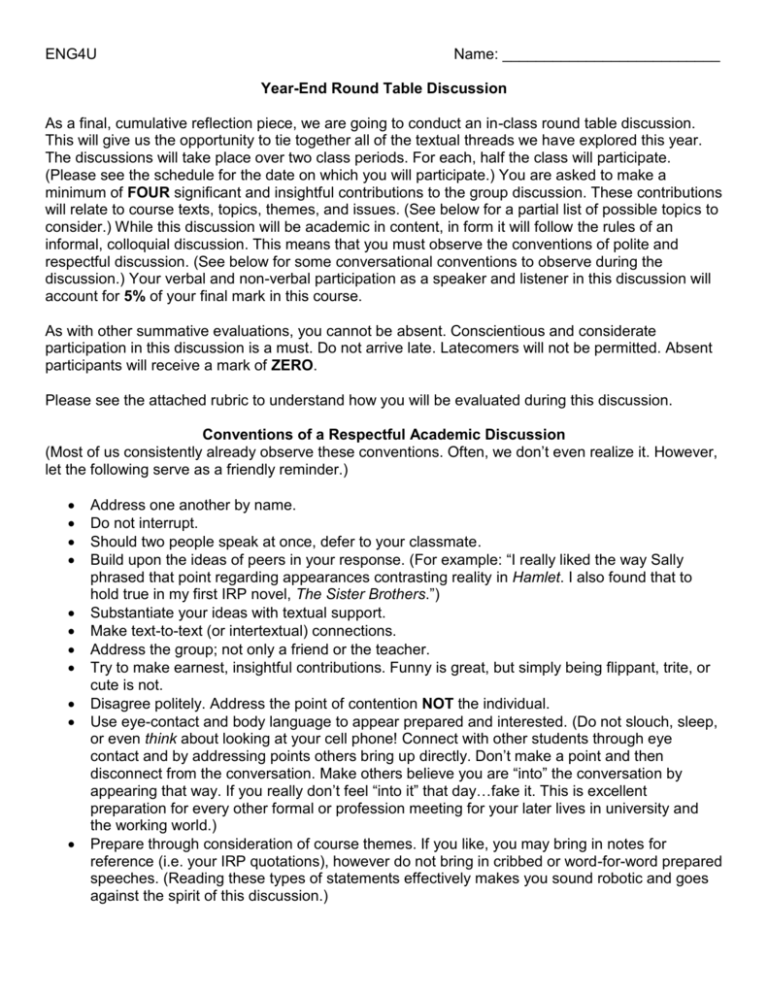
ENG4U Name: __________________________ Year-End Round Table Discussion As a final, cumulative reflection piece, we are going to conduct an in-class round table discussion. This will give us the opportunity to tie together all of the textual threads we have explored this year. The discussions will take place over two class periods. For each, half the class will participate. (Please see the schedule for the date on which you will participate.) You are asked to make a minimum of FOUR significant and insightful contributions to the group discussion. These contributions will relate to course texts, topics, themes, and issues. (See below for a partial list of possible topics to consider.) While this discussion will be academic in content, in form it will follow the rules of an informal, colloquial discussion. This means that you must observe the conventions of polite and respectful discussion. (See below for some conversational conventions to observe during the discussion.) Your verbal and non-verbal participation as a speaker and listener in this discussion will account for 5% of your final mark in this course. As with other summative evaluations, you cannot be absent. Conscientious and considerate participation in this discussion is a must. Do not arrive late. Latecomers will not be permitted. Absent participants will receive a mark of ZERO. Please see the attached rubric to understand how you will be evaluated during this discussion. Conventions of a Respectful Academic Discussion (Most of us consistently already observe these conventions. Often, we don’t even realize it. However, let the following serve as a friendly reminder.) Address one another by name. Do not interrupt. Should two people speak at once, defer to your classmate. Build upon the ideas of peers in your response. (For example: “I really liked the way Sally phrased that point regarding appearances contrasting reality in Hamlet. I also found that to hold true in my first IRP novel, The Sister Brothers.”) Substantiate your ideas with textual support. Make text-to-text (or intertextual) connections. Address the group; not only a friend or the teacher. Try to make earnest, insightful contributions. Funny is great, but simply being flippant, trite, or cute is not. Disagree politely. Address the point of contention NOT the individual. Use eye-contact and body language to appear prepared and interested. (Do not slouch, sleep, or even think about looking at your cell phone! Connect with other students through eye contact and by addressing points others bring up directly. Don’t make a point and then disconnect from the conversation. Make others believe you are “into” the conversation by appearing that way. If you really don’t feel “into it” that day…fake it. This is excellent preparation for every other formal or profession meeting for your later lives in university and the working world.) Prepare through consideration of course themes. If you like, you may bring in notes for reference (i.e. your IRP quotations), however do not bring in cribbed or word-for-word prepared speeches. (Reading these types of statements effectively makes you sound robotic and goes against the spirit of this discussion.) Texts, Topics, and Themes (Note: this list is by no means exhaustive. It is included simply to spark your consideration for ideas and issues from this year’s English course.) postmodernism existentialism Intertextuality authenticity the meaning of life what it means to be human mortality morality fate predestination religion life after death/ the afterlife betrayal lying (to others, to ourselves) love lust sex gender stereotypes appearances versus reality double meaning corporatization power and authority rules genetics science family friendship fascism democracy individualism duty responsibility (individual/ societal) Hamlet Not Wanted on the Voyage Do Androids Dream of Electric Sheep? Blade Runner Never Let Me Go Oryx and Crake Macbeth (ENG3U/4U) narrative structure (i.e. fractured narrative) writing style narrative voice/ perspective setting characterization tone/ mood/ atmosphere diction/ use of language Year-End Round Table Discussion Groups ENG4U-05 ENG4U-07 Monday June 3rd Thursday June 6th Wednesday June 5th Friday June 7th Matthew Wilson Anthony Rebekah Jaimie Melanie Vivien Sami Meagan Zach Sam Amir Iris Young Suk Ana Lisa Candice Cassandra Albert Sophy Evan Steve Trevor Bridgette Anastasia Pouria Keith Thea Robert Fernando Wan Yao Johnnie Helios Anton Sharron Ana David Theodore Clemmy Alfred Cindy Hojung Shashike Eric
